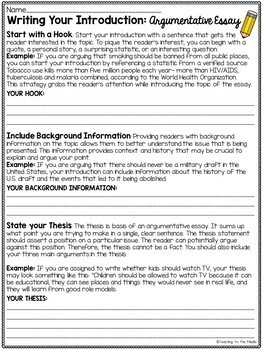Writing a good hook is an essential element of any essay. It should grab your reader’s attention and lead them to the rest of the essay. As a writer, it is important to answer questions in your hook early on while holding some information back for later. If you are writing a thriller, you can introduce a new question every time you answer the previous question to keep your reader guessing until the end of the work. However, if you have multiple chapters in your work, you should not just use a hook for the first chapter.
Good and bad hooks
An argumentative essay hook is an essential element of an essay. It sets the tone for the entire essay and should follow a logical pattern. As such, the hook sentence of an essay is typically a surprising revelation or question. The hook is crucial for swaying the reader’s decision. A good hook sentence should demonstrate the author’s knowledge of the subject and present themselves as an expert in the field. The right hook sentence will capture the reader’s attention and maintain tension at the right level.
The hook in an argumentative essay should be a good one that forces the reader to ask questions. Usually, literary hooks are better suited for personal stories than business ones. They are also longer than a single sentence. They also typically appear as the entire first paragraph. In addition, a good hook should have an emotional component. A literary hook should evoke emotions in the reader and encourage them to ask questions.
Rhetorical questions
An effective argumentative essay starts with a question. A rhetorical question can be anything from a statement about the world, to a question about your personal experiences. Using a rhetorical question can also convey your own disapproval of the topic or demonstrate your frustration. It is best to use a rhetorical question sparingly, though. Here are some examples. Let’s assume you have a persuasive essay.
A rhetorical question is a question that asks the audience to pause and consider the topic. It’s useful when a writer wants to draw the audience’s attention. When used properly, this technique can evoke a strong sense of sympathy from the audience. Remember, though, that a rhetorical question works well when it’s tailor-made for the audience you’re writing for.
Personal examples
You may be wondering how to write a hook for an argumentative paper. The answer is a combination of two approaches: literary hooks and statistical ones. Literary hooks usually involve an example of your own life, while statistical ones are more appropriate for business topics. A literary hook can be a single sentence or it can be a long story. It’s usually the first part of the introduction.
The hook should catch the audience’s attention. Using a funny story, interesting fact, or bold statement can capture the attention of the audience. People are visual, and a hook can evoke a specific scene. By appealing to their senses, a hook can set the tone of the essay. The hook is a critical part of the essay. Once you have it crafted, it’s time to begin writing.
Statistics
Statisticians know how to hook readers. Statistics contain valuable information that readers want to know, and they can provide this information in an argumentative essay. As with any type of statistics, make sure they are relevant to the main point of your paper. Also, make sure they are original research findings and cite the source, if applicable. Be sure to clearly explain any statistics that readers may not understand. If you’re unsure how to use a statistic, try out one of these tips.
One way to make statistics a hook for an argumentative essay is to include them in the body of the essay. The problem with statistics is that they rarely sound good and often interrupt the writing flow. It’s best to make a statistical citation as simple as possible, and to include several statistics related to the same subject within the same paragraph. For example, if the standard deviation of exam two was 11.6, it’s best to include that information within the body of the essay.

